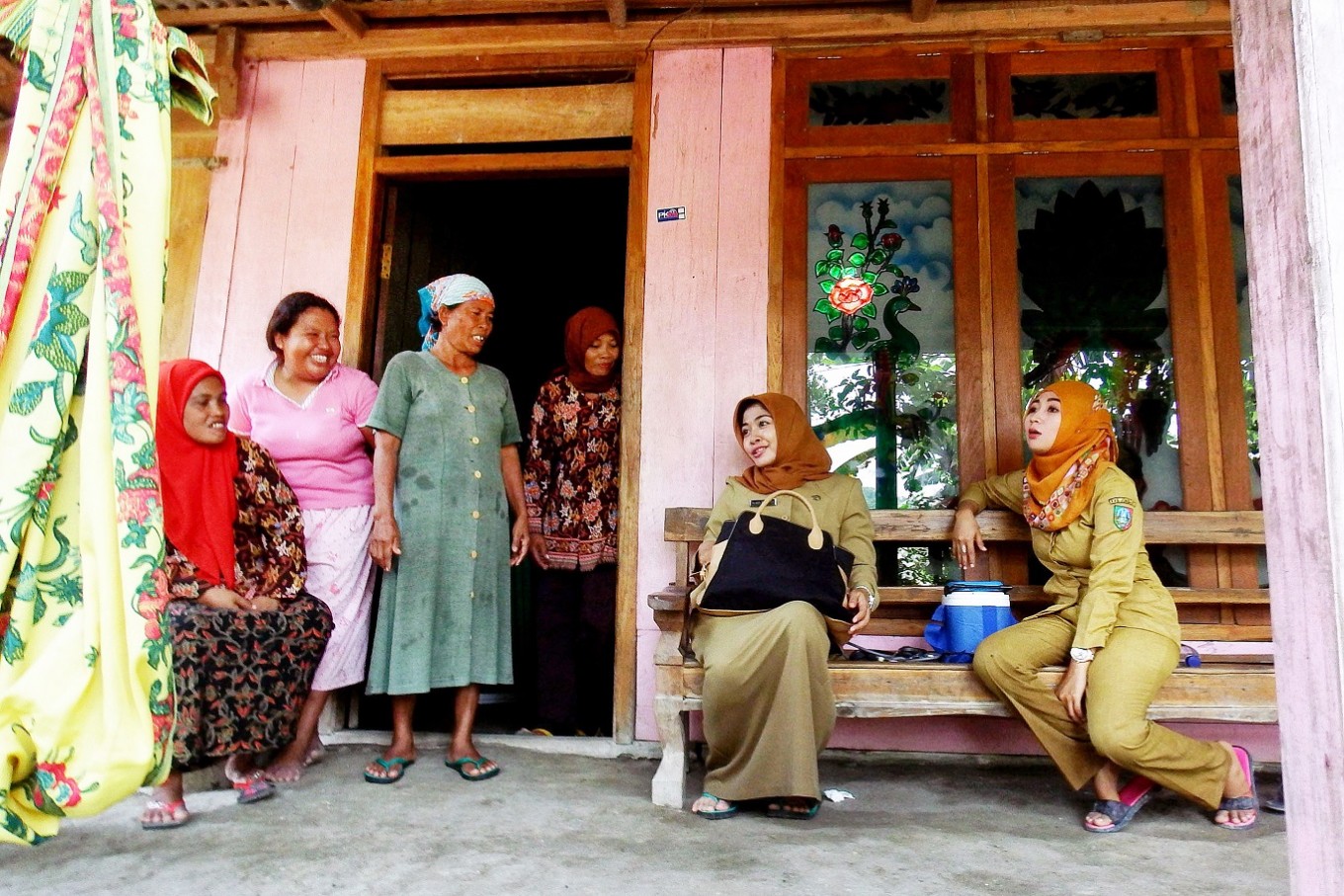Popular Reads
Top Results
Can't find what you're looking for?
View all search resultsPopular Reads
Top Results
Can't find what you're looking for?
View all search resultsTime to deliver: Midwives take on greater role amid pandemic
With the number of COVID-19 cases still rising, midwives across Indonesia must navigate new procedures while delivering babies, in the full knowledge that they are exposing themselves to possible infection.
Change text size
Gift Premium Articles
to Anyone
I
n the time of COVID-19, the role midwives play in helping mothers during and after labor and during pregnancy is more essential than ever.
With the number of COVID-19 cases still rising, midwives across Indonesia must navigate new procedures while delivering babies, in the full knowledge that they are exposing themselves to possible infection.
Sinta, 23, a midwife who works at a hospital in Tangerang, Banten, said there was a heightened sense of caution and seriousness in her workplace to ensure that safety protocols were followed, especially after the government announced the nation’s first COVID-19 case in March.
She said more tests needed to be conducted and more information gathered on the condition of mothers entering the emergency room, including waiting for COVID-19 rapid test results.
Unfortunately for Sinta and her colleagues, the situation is not always so clean-cut or ideal.
“A couple of days ago, I had to help a mother who was already in labor when she was brought into the emergency room. There was no time to run tests on her. I had no time to wear a protection suit or a face shield, so I only wore gloves and a mask,” she told The Jakarta Post on Tuesday.
“I was honestly afraid because in that situation I didn’t know whether she had the virus or not. We only knew we had to work fast to help the mother and baby, so I just whispered to myself ‘bismillah’ and helped her.”
Sinta is keenly aware she faces the risk of infection every time she delivers a baby at the hospital.
She said she could only hope people were responsible and followed physical distancing and other safety measures so she could feel safe at work.
“I used to kiss my parents’ hands before I left for work and when I came home. I used to play with my younger siblings once I got off work. Since the pandemic began, I’ve not done any of those things because I’m afraid I might bring the virus home and infect them,” Sinta said.
According to the Indonesian Midwives Association (IBI), there are currently more than 300,000 midwives across the country.
Emi Nurjasmi, the chairwoman of the association, said at least five midwives had died since March after tending to patients with the disease. “Others have tested positive for COVID-19 and are undergoing treatment,” she said.
With Indonesia celebrating National Day for Midwives on June 24, Emi urged the government and other related organizations to use it as a moment to double down on efforts to support and protect midwives, so they could tend to patients safely at hospitals and antenatal clinics across the country.
By the beginning of June, 974 antenatal clinics across the country had been closed temporarily due to a lack of resources and personal protective equipment. Emi said the administrators were worried a lack of protection at clinics would leave staff exposed to the virus.
IBI has also found that the pandemic has made pregnant women and couples more reluctant to visit health facilities, even just for check-ups or to receive birth control.
“We received reports of a decline in the number of visitors to clinics and health facilities in several cities. On the other hand, there are also reports of increasing numbers of pregnancies during the pandemic,” she said.
Experts say that an increase in the number of unplanned pregnancies during the pandemic not only increased health risks for mothers and infants, but also presented challenges for a new generation of households that may be affected by the economic costs of the pandemic.
“It is really important for Indonesia’s National Population and Family Planning Board [BKKBN], as the sector’s lead, and midwives at health facilities to encourage people to discuss family planning wisely and use contraception,” said Hermawan Saputra, a member of the Indonesian Public Health Experts Association’s board of experts.
The agency has said that by early next year, Indonesia – the world's fourth most populous country – could see 420,000 more births than would otherwise be expected.
During a recent interview, BKKBN chairman Hasto Wardoyo said that partial lockdowns had made it more difficult for Indonesians to access birth control, resulting in a spike in unplanned pregnancies.
"If you're planning to get pregnant, now is not the right time and please do not stop using contraceptives," Hasto said as quoted by AFP.
Hasto said the agency has been sending staff on door-to-door visits in various neighborhoods to give intrauterine devices (IUDs) and other methods of birth control to those who want them.










